Photo: TNC Ecuador
The BCA Fund is managed and supervised by a Board of Directors to be composed of nine directors. Three directors represent the Republic of Ecuador, one of whom is the Government Co-Chair of the Board. The government directors ensure that the resources administered by the BCA Fund are used in a manner aligned with the country’s priorities and that they support the implementation of Ecuador’s public policies. The Nature Conservancy, as a partner in the debt conversion project, maintains one director on the Board. The other five directors are individuals from the society who do not represent institutions, but are selected because they bring complementary skills and experience to ensure that the BCA Fund is managed by a diverse, multi-sectoral group that is knowledgeable about local realities.
Esteban Vega is an economist with a Master of Science (MSc) in Agricultural and Natural Resource Economics and a Master of Business Administration (MBA). He has over 25 years of experience contributing his expertise to conservation, sustainable development, and the empowerment of communities that depend on Ecuador’s natural areas. He has worked alongside international organizations and environmental foundations on projects that integrate conservation with community development.
The BCA Fund will hire a team of professionals to manage the organization. An Executive Director will lead the team, which will include professionals in finance, conservation, monitoring, administration, communication, among others. The BCA Fund will recruit its team through competitive processes, which will be communicated on the website and social media.


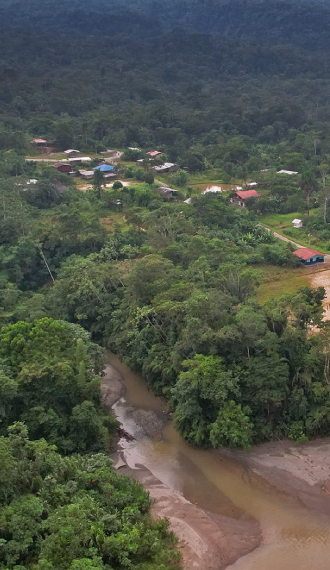


and accountability in the use of the resources received. To this end, the BCA Fund adopts procedures and templates that allow organizations to apply for funding and signs grant agreements with organizations whose projects have been approved, allowing the Fund to monitor and report on the results. The BCA Fund will publish project selection criteria and templates for organizations to submit proposals for funding.
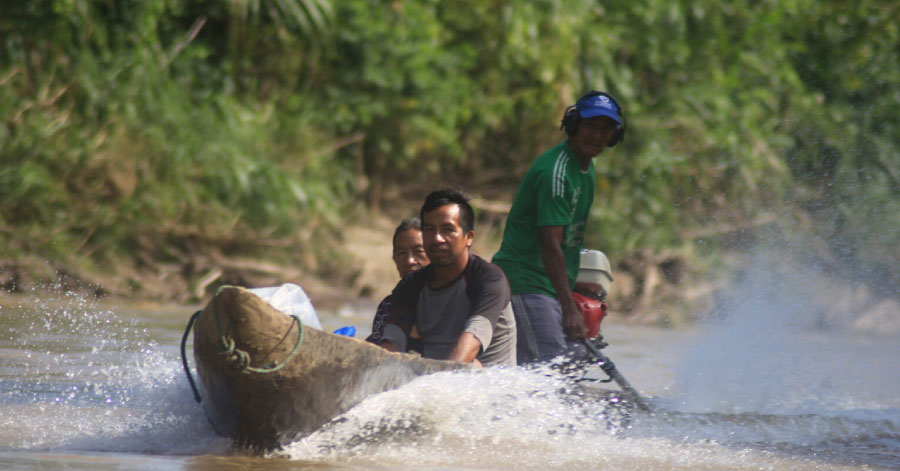
Photo: TNC Ecuador
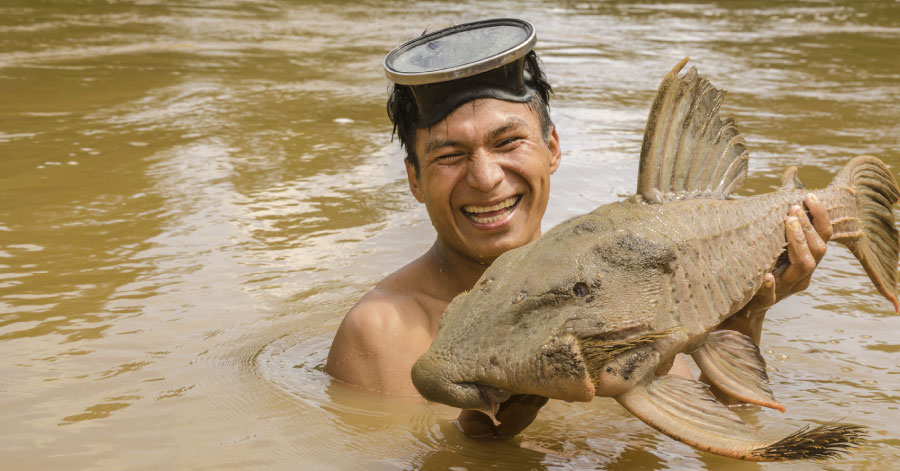
Photo: TNC Ecuador
that will be managed by the BCA Fund. The Program will receive an average of USD 19 million per year for the next 17 years. The financing will also capitalize an endowment fund, expected to be worth USD 135 million by 2042, to support the Biocorredor Amazónico over the long term.

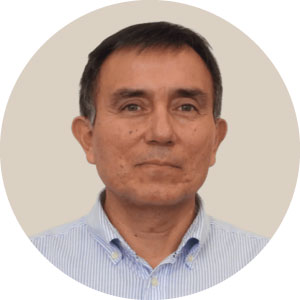
Director of the Ecuador Program of The Nature Conservancy (TNC) since January 2012, he leads a team of approximately 25 Ecuadorian professionals committed to the conservation of terrestrial, freshwater and marine biodiversity in one of the most biodiverse countries in the world. With more than 30 years of experience in biodiversity conservation and sustainable development in Ecuador and Latin America, he has led the implementation of conservation initiatives under different strategies, fostering multi-stakeholder dialogue processes and promoting public policies at the local, national and Andean regional levels. Currently, he is responsible for the overall institutional, programmatic and operational management of TNC Ecuador, ensuring that TNC’s conservation agenda is aligned with national priorities, capacity building, institutionalization of processes and harmonization with other actors seeking sustainability in the country.
Prior to TNC, he promoted páramo ecosystem work in Ecuador as part of EcoCiencia, the Ecuadorian Foundation for Ecological Studies, where he was its Executive Director between 2001 and 2005. From April 2006 to January 2012, he was the regional director of the ECOBONA Program, an Andean initiative of the Swiss Cooperation in Bolivia, Ecuador and Peru, where he worked on a social management proposal for Andean forest ecosystems in these countries.
He holds a degree in Biological Sciences from the Pontificia Universidad Católica del Ecuador, a degree in Agroecology from the University of Costa Rica and a master’s degree in Forest Resources and Conservation from the University of Florida in Gainesville, USA.
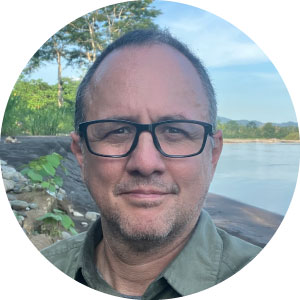
Sebastián Valdivieso is an environmental engineer with a master’s degree in sustainable energy development. He has more than 30 years of experience in environmental issues, especially in the Ecuadorian Amazon. His career spans environmental management, sustainable development and conservation, having worked on projects in Ecuador, Colombia, Peru, Bolivia, Syria and Libya. He currently serves as Country Director for the Ecuador Program of the Wildlife Conservation Society.

Ph.D. in Science, 1996,Institute of Biological Sciences, University of Aarhus, Denmark Doctoral dissertation: Composition, dynamics and structure of dry forest communities in coastal Ecuador.
Degree in Biological Sciences 1989, Faculty of Sciences, Pontificia Universidad Católica del Ecuador.
Dr. Josse is the Executive Director of Fundación EcoCiencia since March 2020. She participates in the development of products of the Amazonian Network of Geo-referenced Socio-environmental Information (RAISG). She was regional ecologist for Latin America and the Caribbean at NatureServe from 2001 to 2016 and developer of methods and products for classification, mapping and assessment of ecosystems across Latin America to support conservation planning. She collaborates with the Science Panel for the Amazon (SPA) to generate an assessment of current trends and recommendations for sustainable and equitable development of the Amazon. She has experience with geo-referenced tools for assessing ecosystem adaptation to climate change, quantitative threat analysis and monitoring of conservation targets.

Byron Adrián Lagla Chimba is a biologist with over 13 years of experience in biodiversity conservation, protected area management, and environmental governance. He currently serves as the Director of Protected Areas and Other Conservation Measures at the Ministry of Environment and Energy, where he leads strategic efforts to safeguard the country’s natural heritage.
He has led high-impact projects in key sectors and has driven the planning and implementation of public policies, coordinating initiatives that strengthen governance, promote ecological restoration, and expand protected areas. He works in close collaboration with communities, international cooperation partners, and a wide range of stakeholders to achieve sustainable outcomes.



Diana Chávez Vargas is a member of the Jatari community in the San Jacinto Commune – OTIP, in the province of Pastaza. She is a Kichwa woman from the Amazon with a solid academic background and a deep commitment to Indigenous peoples and nationalities.
She holds a Master’s degree in Regional and Community Planning, with a specialization in Indigenous planning, from the University of New Mexico (United States). She also earned a degree in Business Administration from Universidad San Francisco de Quito through an ethnic diversity scholarship program.
She served as coordinator of the Escuela Viva de la Amazonía (EVA), a program that strengthens the capacities of Amazonian youth in coordination with CONFENIAE and with support from the Sacred Headwaters Alliance. She has also been president of her community, deputy coordinator for Women’s Affairs in the San Jacinto Commune, and is currently the leader of International Affairs and Organizations of the Kichwa nationality of Pastaza (PAKKIRU).
Her work has focused on supporting organizations in project development, as well as creating management and territorial governance models for the Sapara (Rapaka Nakujinia) and Achuar (Tarimiat Nunka Tepaku) nationalities. With her experience and education, she aims to build bridges between Western academic knowledge and the ancestral wisdom of Indigenous peoples, strengthening their rights, organizational processes, and the effective governance of their territories.

Catalina Pazos is an economist with over 30 years of experience in Ecuador’s financial sector, both in the public and private spheres. Her career includes leadership roles in the Financial Policy and Regulation Board, the Superintendency of Popular and Solidarity Economy, the Superintendency of Companies, Securities and Insurance, BIESS, the Quito Stock Exchange, and PCR Ratings, which has allowed her to build a comprehensive and strategic vision of the financial system.
Throughout her career, she has led the implementation of the National Financial Inclusion Strategy, promoted the integration of financial education into the national curriculum, and strengthened the securities market through reforms that foster transparency, new products, and investor confidence. Her management has been marked by positive impacts on financial stability, regulatory innovation, and equity in access to financial services.
She has a strong academic and professional background: an MBA with a specialization in Finance (Oklahoma City University), certification as a Professional Director (IKIGAI – IDB), and international diplomas in Financial Inclusion, Regulatory Policy, and Capital Markets. She has been a postgraduate professor in subjects such as financial regulatory environment, investment banking, credit, financial risks, and fintech regulation. Her goal is to continue being a visionary leader and advocate of inclusive and sustainable policies, contributing to the development of a fairer, more transparent, and more resilient financial system.

Ricardo Burgos is a Full Professor at the Amazon State University (UEA) and an international consultant, with over 25 years of experience in conservation and sustainable development projects. He has worked with vulnerable communities on issues such as natural resource management, climate change, aquaculture, fisheries, agroforestry, and protected areas.
His experience includes work with NGOs, UN agencies, public institutions, private companies, and Indigenous organizations. Among his accomplishments are the facilitation of processes that have brought nearly one million hectares of Amazonian forests under some form of conservation, and his participation in the Paris Agreement, advocating for the inclusion of the principles of “Buen Vivir” (Good Living) of Amazonian Indigenous peoples.
He holds a degree in Biology (University of Azuay), an MSc in Aquaculture (University of Barcelona), and is a PhD candidate in Aquaculture with a focus on Genetics and Biotechnology (University of Chile). He has also completed diplomas in Environmental Economics and Restoration (CSF, Yale, Complutense University of Madrid). Passionate about his work, he integrates science, practice, and teaching from the Amazon, wherever his expertise is needed.

Esteban Vega is an economist with a Master of Science (MSc) in Agricultural and Natural Resource Economics and a Master of Business Administration (MBA). He has over 25 years of experience contributing his expertise to conservation, sustainable development, and the empowerment of communities that depend on Ecuador’s natural areas.
He has collaborated with international organizations and environmental foundations on projects that integrate conservation and community development—from creating business plans for sustainable fisheries and coffee origin designation, to designing financing strategies for protected areas and energy efficiency programs that benefit both Ecuadorian communities and ecosystems.
His professional background also includes leadership roles in the automotive and financial sectors, where he led teams responsible for managing large-scale financial resources and market-leading products. This experience has strengthened his skills in strategic planning, effective team management, innovation, digital transformation, and the development of new products and services. His leadership has consistently helped organizations grow and remain competitive, driven by perseverance, transparency, integrity, team development, and a long-term commitment to sustainability.
The combination of his technical knowledge in conservation and proven experience in financial management makes him the ideal candidate to lead the Biocorredor Amazónico Fund—an institution that requires both technical vision and strategic capacity to ensure long-term impact and permanence in the protection of the Amazon.